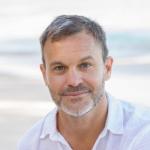Environmental tipping points of cultural identity extinction in integrated human-ecological systems represented by small fishing nations
Small-scale fisheries represent integrated socio-environmental systems that are essential for global food security. For example, more than 6000 indigenous populations globally rely on marine fisheries for subsistence, including many communities in the United States. Global pollution degrades marine resources and human health, resulting in a disconnect between the human and ecological system and loss of cultural heritage. This project will investigate the hypothesis that acceptable levels of pollutant releases have been overestimated by society due to a failure to properly account for their impacts on culture. This analysis will include field research on toxicant accumulation in food webs, human exposure studies, and anthropological research on risk preferences and choices when faced with the threat of potentially polluted food sources. This research is based in the Faroe Islands, a North Atlantic fishing community which has been a traditional whaling society for more than 500 years. It will inform global regulatory efforts to reduce pollutant releases to the environment and provide interdisciplinary training in public policy and human geography, natural science, and public health for one postdoc, a graduate student, and several undergraduate research assistants. Bidirectional community-based research strategies will be used to engage with the Faroese through workshops at the beginning and end of the project and with ongoing participation of many Faroese collaborators.
Small-scale fisheries are integrated socio-environmental systems essential for the food security of many communities. Anthropogenic pollutants degrade the health and quality of cultural keystone species, which can decouple the human and ecological system, resulting in loss of cultural heritage and eventually, leading to a cultural tipping point. The overarching hypothesis of this study is that acceptable levels of pollutant releases have been overestimated by society due to a failure to account for their impacts on culture. The investigators will construct an integrated systems-modeling framework, using the Faroe Islands in the North Atlantic, a traditional whaling society, as a case study to analyze the dynamic impacts of global pollutant release on the health and culture of fishing communities. They will model global environmental mercury (Hg), polychlorinated biphenyls (PCBs), and per- and polyfluoroalkyl substances (PFAS), conduct surveys of risk preferences and consumption behavior among the Faroese, and assess cross-scale governance of pollution release to answer the following: 1) What is the relationship between pollutant releases, pilot whale tissue trends, and Faroese exposures? 2) How have health advisories affected whaling activity, dietary choices and risk perception? 3) How can the potential for cultural degradation of fishing communities impacted by ocean pollution be incorporated into international conventions? and 4) What level of global pollution releases could prevent cultural degradation in fishing communities? Temporal trends in pilot whale and human exposures in the Faroe Islands will provide insight into the coupling of the human system to biological exposures, which will advance understanding among the One Health community. New methods for characterizing the cultural and social value of fishing activities will be developed by analyzing risk tolerance for high levels of pollutant exposures, or consumption of seafood beyond recommended health-based guidelines.
Co-funding for this award is being provided by Navigating the New Arctic (NNA) program one of NSF's 10 Big Ideas. NNA supports projects that address convergence scientific challenges in the rapidly changing Arctic, empower new research partnerships, diversify the next generation of Arctic researchers, enhance efforts in formal and informal education, and integrate the co-production of knowledge where appropriate. This award aligns with those goals.


